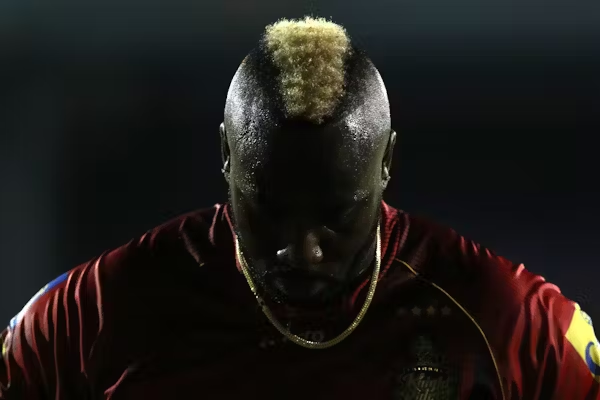
The absence of West Indies cricket stars from Test matches has been a subject of intense speculation and discussion among fans and analysts alike.

While financial considerations are often cited as the primary reason, there are deeper and more complex factors at play. Notably, Andre Russell, a prominent figure in West Indies cricket, has highlighted that the issue extends far beyond the allure of lucrative contracts.
Russell, known for his explosive performances in limited-overs cricket, has become one of the most recognizable faces in the sport. His absence, along with other marquee players, from the traditional Test format has raised eyebrows and fueled debates about the state of West Indies cricket. However, Russell’s insights shed light on the multifaceted nature of this phenomenon.
Firstly, the demanding schedule of modern cricket plays a significant role. The rise of T20 leagues around the world has created a packed calendar, leaving little room for players to commit to the prolonged and physically taxing format of Test cricket. The allure of T20 leagues is not merely financial; the shorter format allows players to showcase their skills in a high-intensity environment while maintaining a more manageable workload. This is particularly appealing for players who wish to extend their careers and avoid burnout.
Moreover, the infrastructure and support systems available to players in T20 leagues are often superior to those in the Test arena. The professionalism and resources provided by franchise teams can offer a more conducive environment for players to thrive. This includes better medical facilities, coaching staff, and overall player welfare initiatives, which are sometimes lacking in the traditional cricketing framework of the West Indies.
Additionally, personal preferences and career aspirations influence players’ choices. The modern cricketer is a global entity, often seeking opportunities that align with personal goals and lifestyles. For some, the allure of playing in iconic venues across the globe and the exposure that comes with participating in international leagues is a significant draw. This global exposure not only enhances their brand value but also opens doors to endorsements and other commercial opportunities.
Another critical factor is the evolving nature of cricket fandom. The T20 format, with its fast-paced and entertainment-driven approach, has captured the imagination of a younger audience. This shift in spectator preferences has, in turn, influenced players’ priorities. The desire to perform on stages that offer maximum visibility and engage with a broader fan base can be compelling.
Russell also touches upon the emotional and psychological aspects of the game. The pressures of representing the West Indies in Test cricket, with its rich history and high expectations, can be daunting. For players who are already in the limelight through T20 performances, the prospect of potential failure in the Test arena can be a significant deterrent. The fear of not living up to the legacy of past greats adds an additional layer of pressure that some players might prefer to avoid.
In conclusion, while financial incentives are a factor in the absence of West Indies stars from Test cricket, they are far from the sole reason. The modern cricket landscape, with its myriad opportunities and challenges, has created a complex environment where players must balance professional ambitions, personal preferences, and the physical demands of the sport. Andre Russell’s perspective offers a valuable lens through which we can understand this intricate dynamic. As the game continues to evolve, it will be crucial for cricketing bodies to adapt and find ways to make Test cricket appealing to the new generation of players, ensuring that this venerable format retains its place at the heart of the sport.
Leave a Reply